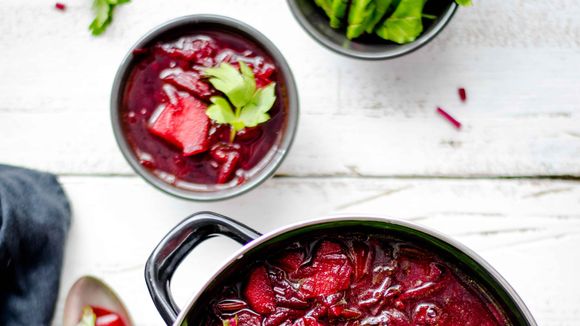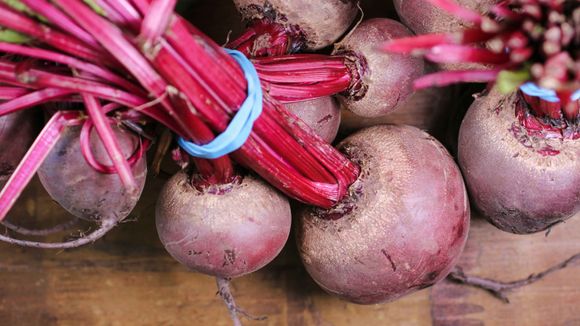What is beets
Beets are a versatile type of vegetable known for its earthy taste and aroma.
In addition to bringing a bright color to your eating plate, beets are very nutritious and full of essential vitamins, minerals, and plant compounds, many of which have healing properties.
What's more, different types of beets are suitable for adding to your diet in dishes such as balsamic roasted beets, hummus, french fries and salads, among many others.
Beets come from the same family as sugar beet. However, it is genetically and nutritionally different, providing a wide range of health benefits, such as reducing blood pressure, improving digestion, and reducing the risk of diabetes. [ref. 1]
The Unique Health Benefits of Beets
Lots of nutrients and few calories
Beets boast an impressive nutritional profile, like many other vegetables. Beets are primarily low in calories, but high in valuable vitamins and minerals. In fact, it contains little of almost all the vitamins and minerals your body needs. Here is a comprehensive list of nutrients contained in a portion of 100 grams of boiled beets:
- Calories: 44 kcal
- Protein: 1.7 grams
- Fat: 0.2 grams
- Carbohydrates: 10 grams
- Fiber: 2 grams
- Folate: 20% of daily value (DV)
- Manganese: 14% of the daily value
- Honey: 8% of the daily value
- Potassium: 7% of the daily value
- Magnesium: 6% of the daily value
- Vitamin C: 4% of the daily value
- Vitamin B6: 4% of the daily value
- Iron: 4% of the daily value
Beneficial for heart health and blood pressure
A 2015 study of 68 people with high blood pressure examined the effects of drinking 250 milliliters of beet juice every day. The researchers found that this significantly lowered blood pressure after taking such juice. [ref. 2]
They suggest that this antihypertensive effect is due to the high levels of nitrate in beet juice. They recommend eating vegetables high in nitrates as an effective and inexpensive way to treat high blood pressure. However, this does not replace the medications prescribed by a doctor, if any.
Beets are also a great source of folate. Although research has shown mixed results, several studies have shown that increasing folate intake can significantly lower blood pressure levels. [ [ ref. 3] ]
Prevention of cancer
A 2019 review of studies found that certain compounds in beets can disrupt cell cancer mutations. Such compounds include betalains, a type of pigment that gives beets its characteristic red or yellow color. They possess a number of anti-inflammatory properties.
Although further research is needed before health professionals can recommend beets as a substitute for other standard methods to reduce the risk of cancer, it may have some effect in reducing the risk of this condition. [ref. 4]
Beets for even better athletic performance
Several studies have shown that dietary nitrates such as those in beets can improve athletic performance. Nitrates appear to affect shape by improving the efficiency of mitochondria, which are responsible for energy production in cells.
According to one review, beetroot juice can increase endurance by increasing the time it takes for exhaustion, boosting cardio-respiratory performance, and improving athletes' performance. Interestingly, beet juice improves cycling performance and increases the body's oxygen use by up to 20%. [ref. 5]
May improve digestive health
One cup of beets contains 3.4 grams of fiber, making beets an excellent source of fiber. Fiber bypasses the digestive process and reaches the colon, where it contributes to the so important balance of intestinal bacteria.
How to consume beets

There are many options for cooking beets - steamed, boiled or pickled beets. Of course, it can also be eaten raw. Here are some ideas on how to gain the nutritional benefits of beets in delicious ways:









